Citius, Altius, and Fortius – “The Olympics”
By Francis Saldanha
Bellevision Media Network
26 June 2012: The ancient Olympics were born in Greece; they were revived in Athens in 1896, and now, after a period of over a century. It is a fitting time to reflect on the history of this amazing phenomenon.
Ancient Olympics
The ancient Olympic Games began over 2700 years ago in Olympia, in southwest Greece. The games were part of religious festival. The Greek Olympics, thought to have begun in 776 BC were held in honour of Zeus, king of the Gods, and were staged every four years. People from all over the Greek world came to watch and take part.
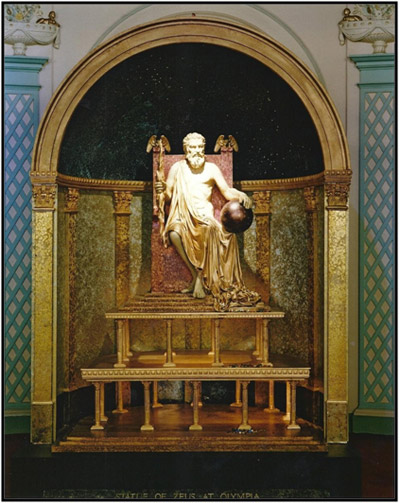
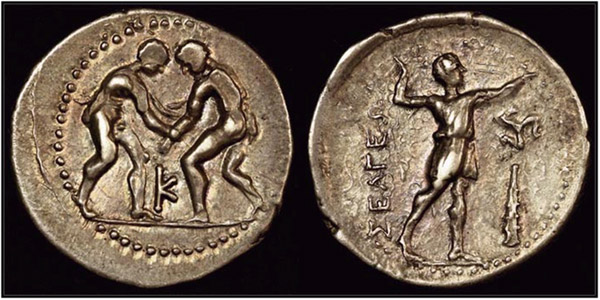
At the first one-day Olympic Games, the only event was a short sprint from the one end of the stadium to the other. Gradually, more events were added to make it four day event. They included wrestling, boxing, long jump, javelin and discus and chariot racing. Winners were given wreath of leaves and a hero’s welcome back home.
About 50,000 people could sit in the stadium. Only men, boys and unmarried girls were allowed to take part in the Olympic Games. The games ended with a feast. Lots of Oxen were roasted in the giant barbecue. Trades did business and entertainers performed.
The ancient Olympics lasted for more than a thousand years, but they started to loose their importance as the Romans began to take over Greece in the second century BC. Although the Romans kept the Games, they destroyed Games spirit and the sacred traditions that had grown up around them. In AD 394, Emperor Theodosius of Rome officially abolished the Games.
Modern Olympics
The Olympic Games is a major international event featuring summer and winter sports, in which thousands of athletes participate in many sports events. The Olympic Games have come to be regarded as the world’s foremost sports competition where more than 200 nations participate. Baron Pierre de Coubertin founded the International Olympic Committee (IOC) in 1894. The IOC has since become the governing body of the Olympic Movement, whose structure and actions are defined by the Olympic Charter.
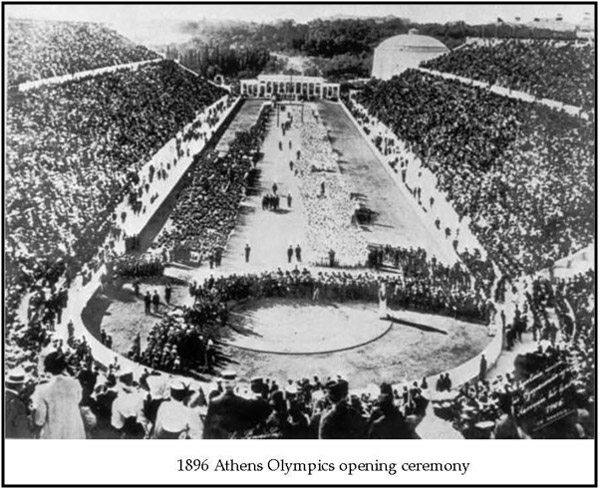
The Games have grown in scale to the point that nearly every nation is represented. Such growth has created numerous challenges, including boycotts, doping, bribery of officials and terrorism. The Olympics and its media exposure provide unknown athletes with the chance to attain national, and in particular cases, international fame. The Games also constitute a major opportunity for the host city and country to showcase itself to the world.
Olympic Games are the biggest sporting event on the planet. With more than 26 Olympic sports in 34 venues, 10,500 athletes & 20 Paralympics sports and 4200 Paralympics athletes in 21 venues and millions of spectators, it’s going to be a busy summer this year in London.

Although we are all familiar with the Olympic Games, but few understand the history of the Games and the ideals they embody. In this article, as I look at the athletic principle that fueled the ancient Olympics and how this same ideals inspired their revival in modern times. A brief introduction appears below for each of the sections of this article about this mega event which will unfold in London in few days.
The Olympic Slogan (motto)
The Olympic slogan is "Citius, Altius, and Fortius." These three Latin words mean "Swifter, Higher, and Stronger." Baron de Coubertin borrowed the motto from Father Henri Martin Dideon, the headmaster of Arcueil College in Paris. Father Dideon used the motto to describe the great achievements of the athletes at his school. Coubertin felt it could be used to describe the goals of great athletes all over the World.
The Olympic Flame (torch)
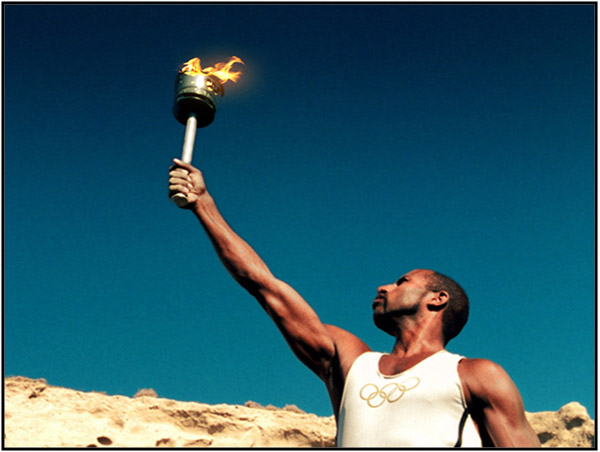
The tradition of lighting an Olympic Flame comes from the ancient Greeks. During the Ancient Olympic Games, a sacred flame was lit from the sun’s rays at Olympia, and stayed lit until the Games were completed. This flame represented the "endeavor for protection and struggle for victory." It was first introduced into our Modern Olympics at the 1928 Amsterdam Games. Since then, the flame has come to symbolize "the light of spirit, knowledge, and life."
The Torch Relay also began in the Ancient Olympics and was revived at the 1936 Berlin Games. Originally, the torch was lit at Olympia in Greece and then carried by relay to the host-city of the games. The last runner carries the torch into the Olympic Stadium during the Opening Ceremony. The flame is then lit from the torch and will remain lit until it is extinguished during the Closing Ceremony. The Torch Relay symbolizes the passing of Olympic traditions from one generation to the next!
The Ancient Greeks considered fire to be a divine element, and they maintained perpetual fires in front of their principal temples. This was the case in the sanctuary of Olympia, where the Ancient Olympic Games took place. The flame was lit using the rays of the sun, to ensure its purity, and a skaphia, the ancestor of the parabolic mirror used today for lighting the Olympic flame. A flame burned permanently on the altar of the goddess Hestia, and such fires were also lit on the altars of Zeus and Hera, in front of whose temple the Olympic flame is lit today.
In the context of the modern Games, the Olympic flame represents the positive values that the man has always associated with fire. The purity of the flame is guaranteed by the way it is lit using the sun’s rays. The choice of Olympia as a departure point emphasizes the link between the Ancient and Modern Games and underlines the profound connection between
these two events.
A relay precedes the arrival of the flame at its final destination: the Olympic stadium in the host city of the Olympic Games. The Organizing committee of the Olympic Games is responsible for bringing the Olympic flame to the Olympic stadium. When the flame finally arrives at its destination, the final torchbearer(s) run into the stadium to light the Olympic cauldron with the flame, which remains lit for the duration of the Games and is extinguished only at the Closing Ceremony of the Games.
Like the messengers who proclaimed the sacred Olympic truce, the runners who carry the Olympic flame carry a message of peace on their journey.
The significance of the Olympic Rings (symbol)
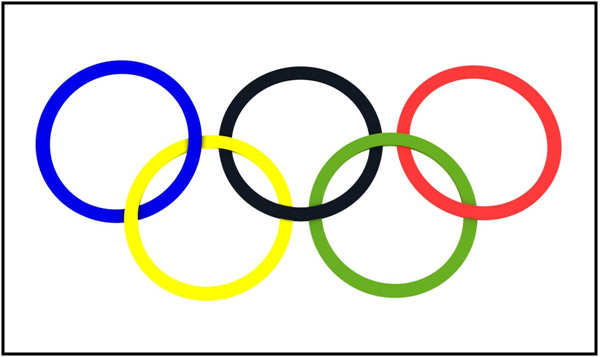
The Olympic Movement uses symbols to represent the ideals embodied in the Olympic agreement. The Olympic symbol better known as the Olympic Rings, The five rings were adopted by Baron Pierre de Coubertin (founder of the modern Olympic Movement) in 1913 after he saw a similar design on an artifact from ancient Greece. The five rings represent the five major regions of the world: Africa, the Americas, Asia, Europe, and Oceania. Every national flag in the world includes at least one of the five colors, which are (from left to right) blue, yellow, black, green, and red. It is important to emphasize that Pierre de Coubertin never said nor wrote that the colors of the rings were linked with the different continents.
The Olympic Flag made its debut at the 1920 Olympic Games in Antwerp, Belgium. At the end of each Olympic Games, the mayor of that host-city presents the flag to the mayor of the next host-city. It then rests at the town hall of the next host-city for four years until the Opening Ceremony of their Olympic Games.
The Athletes Oath (pledge)
At the start of each Olympics, every athlete promises to play fairly and obey all of the Olympic rules. One athlete from the host country takes this oath at the Opening Ceremonies on behalf of all athletes. The chosen athlete holds a corner of the Olympic Flag while repeating the oath:
"In the name of all competitors, I promise that we shall take part in these Olympic Games, respecting and abiding by the rules that govern them, in the true spirit of sportsmanship, for the glory of sport and the honor of our teams."
The oath was written by Baron de Coubertin, and became a part of our Modern Olympic Games in 1920. Olympic officials also have to take an oath. While holding a corner of the Olympic Flag, one official from the host country repeats a similar oath on behalf of all the officials.
The oath for the 2000 games in Sydney, Australia was read by Rechelle Hawkes, captain of the Australian women’s field hockey team on behalf of the nearly 11,000 athletes entered in the games. For the first time, the oath included a pledge against the use of drugs at the games. "In the name of all competitors, I promise we shall take part in these Olympic Games, respecting and abiding by the rules which govern them, committing ourselves to a sport without doping and without drugs, in the spirit of true sportsmanship, for the glory of sport and the honor of our teams”.
These symbols that identify the Olympic Games both celebrate and commemorate the history of the Games and create new legacies and memories for future generations.
To be continued…..
| Comments on this Article | |
| Philip Mudartha, Qatar | Wed, June-27-2012, 3:02 |
| I erred; Athens hosted Olympics in 2004, a year before my first visit to the city. Today, I have a visit to the place organized. If you want to read more on AncientOlympic Games, this is the link: http://odysseus.culture.gr/a/1/11/ea111.html | |
| Philip Mudartha, Qatar | Tue, June-26-2012, 3:02 |
| The last I was here in Atrhens, nearly all shops had unsold stock of T-shirts and other athletic wear brought in for the Olympic Games that AThens hosted to mark the centenray of modern Games. This time Olympic Games is on none's mind. Businesses are solicting custom and people are confused and dazed. So, let us see how Greece does at London Olympics due in less than a month.. | |
| Alphonse Mendonsa, Pangla/Abu Dhabi | Tue, June-26-2012, 10:00 |
| Thanks a lot Francis for the detailed info on history of Olympics. I thought you are only specialized in gardening but now I am pleased to learn you have many more hobbies such as sport. It is a well researched article and nice to know the beginning of the Olympics. Thanks Bellevision for this article and many more very well researched articles. This is one written at the right time so when we watch the London Olympics we all know the significance of the game. | |
| Philip Mudartha, Qatar | Tue, June-26-2012, 2:43 |
| I write this from Athens, just a mile away from the location where it all began | |




 Write Comment
Write Comment E-Mail To a Friend
E-Mail To a Friend Facebook
Facebook Twitter
Twitter  Print
Print 














